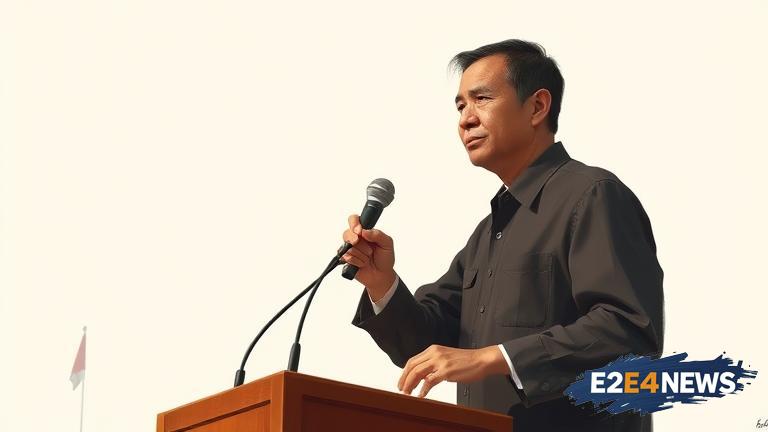In a significant development, the Indonesian government has confirmed that direct elections will continue to be a part of the country’s democratic process. This decision has been met with relief and approval from various stakeholders, including citizens, politicians, and international observers. The direct election system has been in place since 2004 and has been instrumental in promoting democracy and good governance in Indonesia. The government’s decision to retain this system is a testament to its commitment to upholding democratic values and principles. The direct election system allows citizens to directly elect their leaders, including the president, governors, and mayors, thereby giving them a greater say in the country’s governance. This system has been credited with increasing transparency, accountability, and participation in the electoral process. The government’s decision is also seen as a positive step towards consolidating democracy in Indonesia, which has made significant progress in this regard since the fall of the authoritarian Suharto regime in 1998. The country has held several successful direct elections, including the 2019 presidential election, which saw the incumbent president, Joko Widodo, win a second term in office. The direct election system has also been praised for promoting political stability and reducing the risk of electoral disputes. However, there have been concerns about the potential for money politics and voter manipulation, which can undermine the integrity of the electoral process. To address these concerns, the government has implemented various measures, including stricter campaign finance regulations and voter education programs. The decision to retain the direct election system is also seen as a reflection of the government’s responsiveness to public opinion. A recent survey found that a majority of Indonesians support the direct election system and believe it is essential for promoting democracy and good governance. The government’s decision is expected to have a positive impact on the country’s political landscape, promoting greater stability and predictability. The international community has also welcomed the decision, with many countries praising Indonesia’s commitment to democracy and human rights. The United States, in particular, has been a strong supporter of Indonesia’s democratic transition and has provided significant assistance to promote democratic institutions and practices. The European Union has also been a key partner in promoting democracy and human rights in Indonesia. The decision to retain the direct election system is also seen as a positive step towards promoting regional stability and cooperation. Indonesia is a key player in the Association of Southeast Asian Nations (ASEAN) and has played a leading role in promoting regional integration and cooperation. The country’s commitment to democracy and human rights is seen as a model for other countries in the region, which are also transitioning towards more democratic forms of government. In conclusion, the Indonesian government’s decision to retain the direct election system is a significant development that promotes democracy, good governance, and political stability. The decision is a testament to the government’s commitment to upholding democratic values and principles and is expected to have a positive impact on the country’s political landscape and regional stability.
